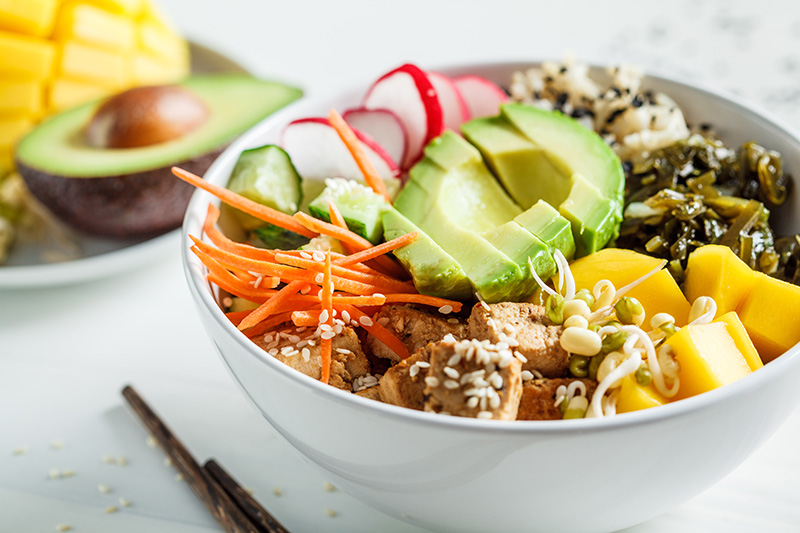It's easy to get answers about health and nutrition! Just send your question by email to [email protected] and Dr. Harlan will respond to selected questions of general interest. Answers will be posted in the Ask Dr. Gourmet newsletter (sign up now!) and archived in the Ask Dr. Gourmet section of the website.
Please note that the Ask Dr. Gourmet feature is restricted to questions regarding food and nutrition. Due to the many questions we receive, not all questions may be answered. For more specific questions about your individual health, please contact your doctor. About Timothy S. Harlan, MD, FACP, CCMS | Terms of Use | Privacy Policy
Ask Dr. Gourmet
If all animal protein is bad for you, can eating fish be good for you?
I can't seem to get a straight answer about eating fish. Dr Colin Campbell, in The China Study, says any type of animal protein will cause cancer. Other doctors are saying it prevents cancer. I am confused. I don't eat red meat or poultry, and I do like salmon about twice a week, but I don't want to eat it if it's going to cause cancer.
Dr. Gourmet Says...

We have known for a long time that if it's planned properly, a vegetarian diet is a healthy diet. There is great evidence that adopting a vegetarian diet may prolong your life. There is good research that eating only plant based foods will prevent many diseases.
I am not one who wishes to adopt a vegetarian diet (and certainly not a vegan diet). While this might be the "perfect diet," it's not for me. There's too much evidence that says a prudent diet that includes some animal protein is a good compromise. Life is not about being perfect: it's about finding a healthy lifestyle that you can live with for the long term.
Like you, I enjoy eating fish. I also have beef and poultry occasionally. I use butter sparingly and I use some other dairy products in my recipes (mostly processed dairy such as yogurt and cheese). I also eat a lot of fruit, vegetables, and legumes, and I consume alcohol in moderation. I use great quality, delicious vegetable oils. I savor my food and enjoy myself.
Dr. Campbell's information is not new, nor is he the only one to have performed excellent research into this. The science is well established. I believe it. I lecture to medical students that the research indicates that vegetarians do live longer with less disease.
I also tell these medical students that "perfect is the enemy of better."
Telling their patients that they must eat vegan (or vegetarian) in order to have a healthy diet is not only demonstrably false, but it also does their patients a disservice by discouraging many of them from improving their diet at all:
"Me, go vegan? Forget it."
"No real butter on my toast?"
"You'll take my Red Beans and Rice with smoked sausage from my cold, dead fingers."
"But what about my tuna salad sandwiches?"
Remember - for every single point you improve your Mediterranean Diet score, you reduce your risk of all-cause mortality by about 5%. Further, if you have a score of 5-6 (pretty good) and improve it to 7-9, you reduce your risk by 25%.
That can mean something as simple as switching from white bread to whole wheat bread (whole grains) and having peanut butter (a legume) and jelly (a reasonable amount) on that bread every day for lunch. (Not only that, you'll probably save money, too.) (Calculate your Mediterranean Diet Score here.)
If a vegetarian or vegan diet is one that you can live with for the long term, great! The best diet for anyone is one that is both healthy and one you can stick to. For many people vegetarian or vegan simply isn't something they can live with, and the research supports a more moderate approach to diet.
Thanks for writing,
Timothy S. Harlan, MD, FACP, CCMS
Dr. Gourmet
